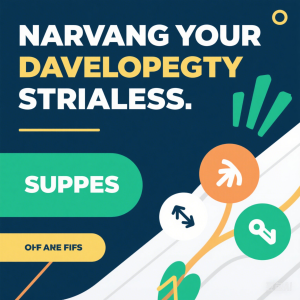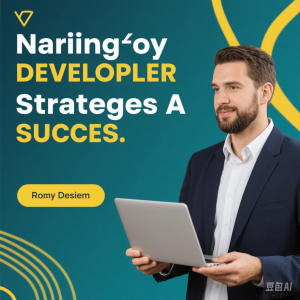Navigating Your Developer Career: Unleashing the Power of Code for the Future

Navigating Your Developer Career: Unleashing the Power of Code for the Future
In the fast – paced world of technology, where code is the language that powers everything from our smartphones to complex enterprise systems, the role of a developer has never been more crucial. As we stand at the crossroads of innovation, the choices we make in our developer careers can determine our future success and impact.
Continuous Learning: The Foundation of a Successful Developer Career
The tech landscape is in a constant state of flux. New programming languages emerge, frameworks are updated, and software development methodologies evolve. To stay relevant, developers must embrace continuous learning. For example, Python has seen a meteoric rise in recent years, not only in web development but also in data science and machine learning. By investing time in learning Python and related libraries like TensorFlow or Django, developers can open up new career opportunities. Online platforms such as Coursera, Udemy, and edX offer a plethora of courses, from beginner – level programming bootcamps to advanced courses on artificial intelligence algorithms.
Building a Diverse Skill Set
Gone are the days when being proficient in a single programming language was enough. Today’s developers need a diverse skill set. In addition to coding languages, understanding databases (both relational like MySQL and non – relational like MongoDB), version control systems like Git, and cloud computing platforms such as Amazon Web Services (AWS) or Microsoft Azure is essential. A developer who can seamlessly integrate a web application with a cloud – based database, manage code changes efficiently with Git, and deploy the application on AWS has a significant edge in the job market. This multi – disciplinary approach also enables developers to work on more complex and challenging projects, contributing to their professional growth.
Networking and Community Engagement
Networking is often overlooked but is a powerful tool in a developer’s career arsenal. Attending tech conferences, meetups, and online forums allows developers to connect with like – minded individuals, industry experts, and potential employers. For instance, events like Google I/O or PyCon bring together thousands of developers from around the world. By presenting your work, participating in hackathons, or simply engaging in conversations, you can gain exposure, learn about new trends, and even land new job opportunities. Online communities such as Stack Overflow also provide a platform for developers to ask questions, share knowledge, and build their reputation within the developer community.
Career Progression: From Junior to Senior Developer and Beyond
The journey from a junior developer to a senior position is not just about years of experience but also about taking on more responsibility and demonstrating leadership. Junior developers typically focus on implementing features based on given specifications. As they progress, they start to be involved in system design, architecture decisions, and mentoring junior team members. Senior developers may also take on roles such as technical lead, where they are responsible for the overall technical direction of a project or a team. Beyond senior developer, some may choose to become software architects, focusing on high – level system design, or even transition into management roles, overseeing multiple projects and teams. Each step in this progression requires a different set of skills, from technical expertise to communication and leadership skills.
In conclusion, a successful developer career is a continuous journey of learning, skill – building, networking, and career progression. By staying informed, adaptable, and engaged, developers can navigate the complex world of code and position themselves at the forefront of the digital future. The code we write today is not just lines of text; it is the key that unlocks the doors to a future filled with endless possibilities.




